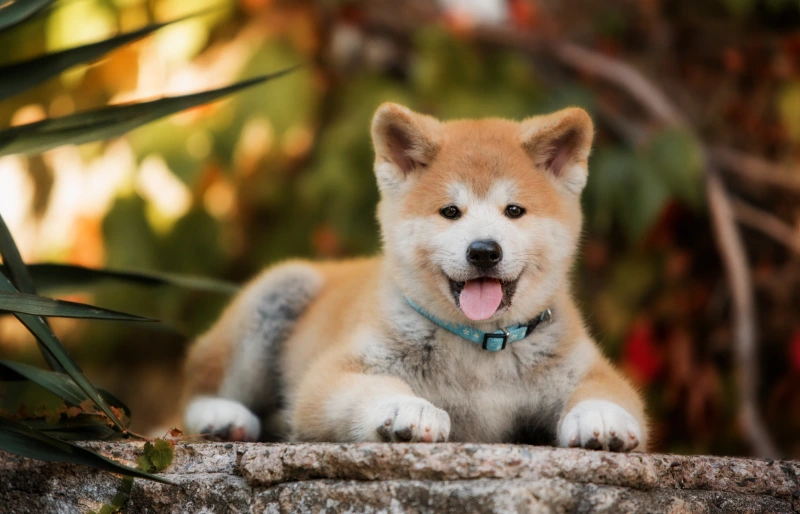The 10 Dog Breeds That Bark the Most: Temperament & Pictures
By Ashley Bates
Updated on
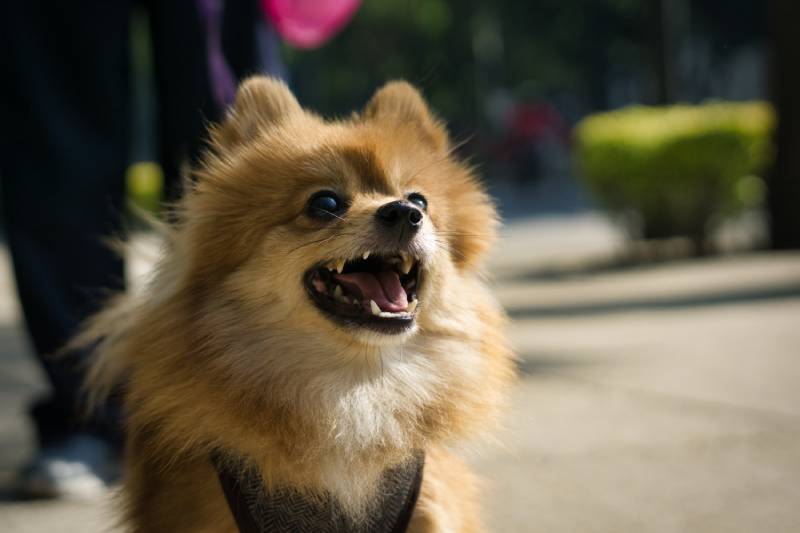
Barking is a real turn-off for some dog owners. In some instances, it won’t matter a bit how much your dog uses their voice. But in other situations, it can be problematic. Barking is a make-or-break (whether you have neighbors nearby or a snoozing infant you can’t disturb), but in some cases, you may want a dog that barks a lot to alert you of anything that is going on.
So, checking compatibility is key if you’re looking to welcome a dog into your home. If you’re looking for an alert breed that alarms you or want to steer clear of mouthy breeds, let’s learn a little bit more about each one of these 10 dog breeds that bark the most.
Top 10 Barking Dogs
1. Chihuahua
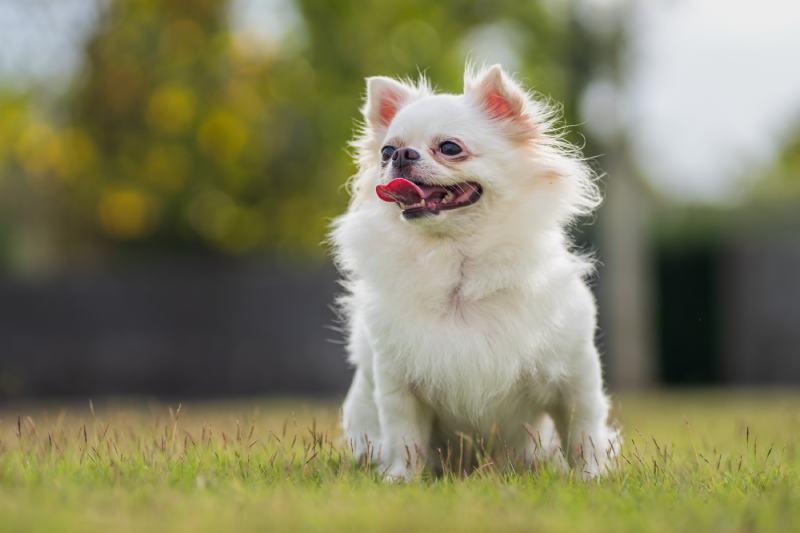
The ever-popular Chihuahua has its flaws—it’s true. The Chihuahua has been popular for years! Their compact size and ability to bond make them incredibly good candidates for a lot of folks. The Chihuahua has lots of good qualities, but being low barking is not one of them.
Personality
Chihuahuas are known for being needy dogs that thrive on the companionship of their owners. Some of them would prefer to be only dogs, while others thrive in multi-dog households. This is a dog whose personality depends a lot on the individual dog, and not so much on the breed as a whole. You can have a very personable Chihuahua or one with little dog syndrome. It just depends.
Chihuahuas tend to mesh very well with one person in particular. There can be exceptions to this, as Chihuahuas can form a special bond with each household member. However, they are known to gravitate towards their favorite individual.
Chihuahuas work very well in apartments and smaller living spaces because of their compact size, but not so much their temperament. Chihuahuas are notoriously aggressive towards strangers and even small children. They also tend to bark a lot, which can disrupt your neighbors. It might work fine in certain situations, and in others, it can be a little complicated.
Adaptability
We wouldn’t describe the Chihuahuas as being an adaptable breed. They like to get into a groove and stick with it. They prefer a life with consistency, predictability, and peace. They might not do well in homes with small children due to their independent, bossy nature.
Diet and Exercise
Chihuahuas can be very demanding little dogs, requiring special diets to make them happy. They also are prone to dental issues, making dry kibble challenging. These dogs do best on fresh or wet canned food diets. Chihuahuas don’t require much exercise, which is perfect if you have a more sedentary lifestyle.
Living Compatibility
Some Chihuahuas can be very compatible with a growing family. However, most of them prefer a relaxed lifestyle.
2. Yorkshire Terrier
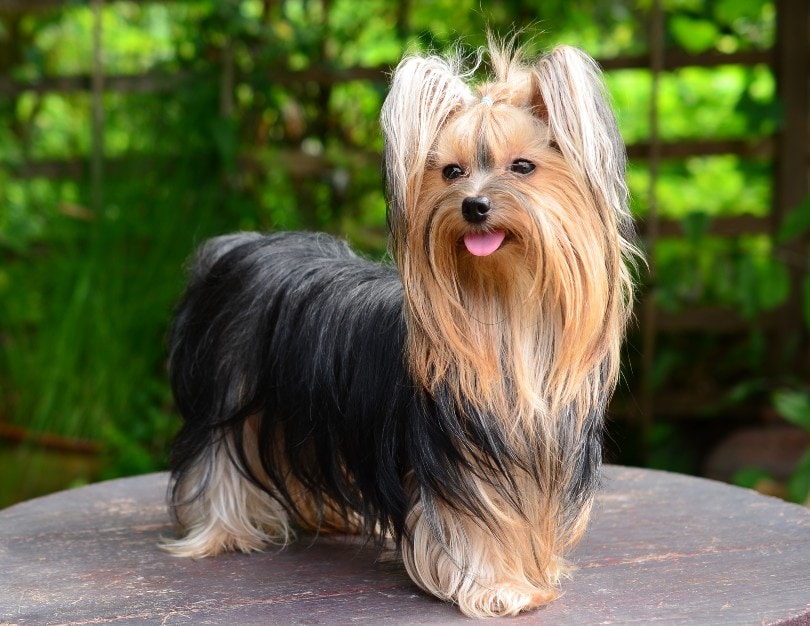
The Yorkshire Terrier may be small, but he is mighty! These pups have a lot of attitude, which comes through in barking vocalizations. These little dogs bark, bark, bark to alert the home of every little thing.
Personality
The Yorkshire Terrier is a brave, independent little dog with a big personality. They rule the roost, thinking they are the monarch of the household. These dogs can be the ideal fit for a person who wants a dog that wants to be the center of attention (as they will be).
If you don’t plan to spoil your pooch, the Yorkie might not be the right fit for you. This breed is very royal in nature and demands adequate attention. These fierce little dogs are fiery and fantastic. However, they might not do great with small children.
Adaptability
The Yorkshire Terrier can do very well with their person but might not acclimate so well with others in the household. They can be stubborn and very set in their ways, making them inflexible. They might also have a bit of conflict or power struggle with smaller children. Their rambunctiousness and erratic movements can irritate or upset a Yorkie.
Diet and Exercise
These are very high-energy dogs that require a calorie and protein-dense meal that can support their tiny bodies. These dogs require a moderate amount of exercise but due to their small nature, they tire quickly.
Living Compatibility
Yorkshire Terriers are often better with individual or single owners than growing families. These dogs require a lot of attention and love to be your shadow companion. They would prefer to be your only baby instead of having to share with you.
3. Maltese
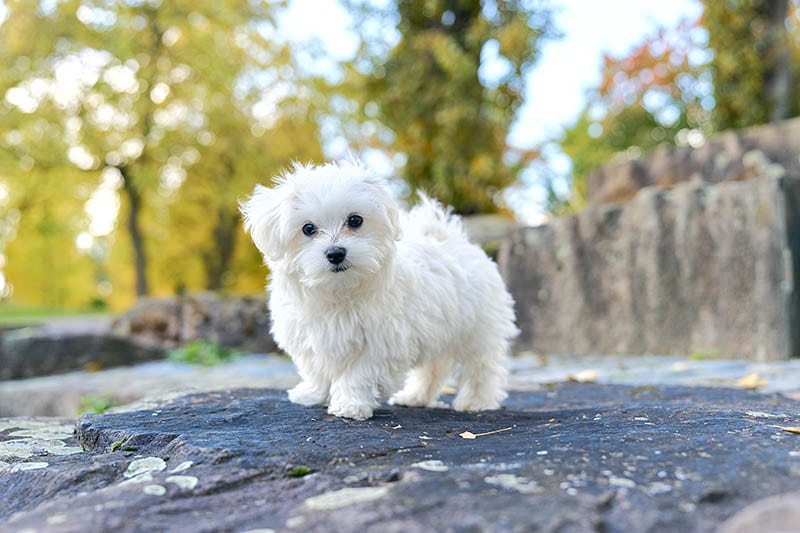
The Maltese is popular due to its adorable appearance and compact nature. However, the Maltese is among the small breeds known as yippers. These dogs tend to bark a lot, which can be very challenging for some owners to manage.
Personality
The Maltese is your typical small dog. They have a huge personality and a little body. These dogs tend to be very attached to their owners and adore being shadow dogs. So, if you’re looking for a dog to hang out with you at every turn, the Maltese might be a very good option.
Because of their compact size, they also make fabulous additions to smaller homes or shared spaces. If a Maltese is raised with children, they typically can do fine with them. However, some will be more particular and less likely to mesh with smaller kids.
Adaptability
The watchdog Maltese is a highly adaptable breed. They can adjust to a variety of situations, making them very good pets for people who have changing lives.
Diet and Exercise
The Maltese might be a little bit of a finicky eater. You might find that these dogs prefer wet or fresh food over dry kibble and stick to it. Maltese are also prone to dental problems, making wet food more palatable and easier to chew. The Maltese require a low to moderate amount of exercise. Because of their low exercise requirements, they can make fabulous pets for older folks who live a slower-paced life, as long as you don’t mind the barking.
Living Compatibility
The Maltese get very attached to their owners. If ever rehomed, they can adjust to the right situation. However, it might take them a long time to learn to trust again. The Maltese tend to be compatible with most other pets, although they can have a bit of a small dog complex.
4. Bloodhound

The Bloodhound is notorious for their impeccable sense of smell. This tracking dog leaves no stone unturned and is capable of incredible sense perception. When you have a Bloodhound, be prepared for a lot of barking because they like to alert people.
While these pups may appear lackadaisical and calm, they are also the first to let you know if anything peculiar is happening around the home or if an unfamiliar animal is marching on the property.
Personality
Bloodhounds are typically pretty calm, cool, and collected. They are the type of dog you could see lounging on the porch on a lazy summer day. These dogs tend to be incredibly loyal, devoted, and loving towards their owners and are very good with children when they’re raised alongside them.
Bloodhounds are typically very good with other canines but might not have the same sentiment toward smaller pets, as they are notorious hunters.
Adaptability
The Bloodhound is very adaptable in a variety of situations. They make very good companions and workers. They tend to mesh well with everyone but make amazing watchdogs.
Diet and Exercise
Bloodhounds are aligned with a heavy bone structure. They require a high protein, calorie-dense diet to support their large bodies. These dogs often benefit from ingredients like chondroitin and glucosamine to support their joints. The Bloodhound isn’t the most exercise-intensive breed, though they still need proper exercise outlets.
Living Compatibility
This pup is often very compatible in several living situations. However, they do best in homes with lots of land to explore. These dogs aren’t so much ‘city dogs’ and might never adapt to apartment living. However, some of them can become happy in smaller settings, permitting they have adequate exercise outlets.
5. Beagle

Beagles have always been a popular dog choice because they are very agreeable and tend to be very good with children. However, they have strong hunting roots, sometimes making them vocalize a lot.
Personality
Beagles generally have a very laid-back personality. They have the type of character that makes them a really great option for children. They are smaller dogs, but not too small and not too big. People find that they are very good in between and won’t be responsible for knocking a lot of toddlers over. Beagles are generally very agreeable, though some of them can be territorial with other dogs. If you plan to have them around other pets, socializing them early is a good idea.
Adaptability
Beagles are often incredibly adaptable dogs. So, if you are getting a full-grown Beagle from a rescue or shelter, the likelihood that it will be able to acclimate to your lifestyle is pretty good.
Diet and Exercise
Beagles don’t have any special dietary requirements. You can choose the best dog food agreed upon by your veterinarian. However, they can be prone to weight gain and might require portion control.
Beagles are hunting dogs at heart. They require extensive exercise to keep them happy and healthy. Even though they love to relax, they need a way to burn off steam. Beagles do best in a home with an active owner or large backyard.
Living Compatibility
Beagles are often very easy to live with. However, like many hound dogs, they can have a strong smell. Some people don’t prefer this odor in their homes, though it is easily manageable with proper grooming techniques. As far as personality is concerned, most Beagles can get along with just about anyone or anything.
6. Pomeranian
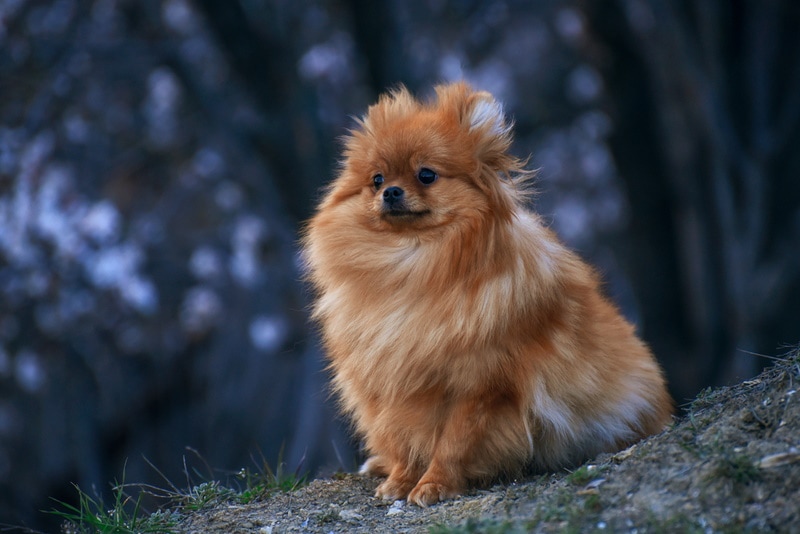
The small Pomeranian certainly is a spunky canine. Along with their spirit of nature, Poms are also quite spitfires when it comes to barking.
Personality
Pomeranians tend to be very energetic and bossy. These little dogs have to be the center of attention and absolutely love playing the dominant role. Even though they’ll think they’re the biggest dog in the house, they tend to get along very well with other animals and can often make suitable canines in homes with children.
Adaptability
Pomeranians tend to be moderately adoptable dogs. They do get very attached to their owners, so it might be challenging for them to readjust if they have to go to a new home. However, with proper placement and patience, it’s possible.
Diet and Exercise
The Pomeranian has no special dietary requirements, though they can be a little picky occasionally. It’s easier for your Pomeranian to eat fresh or wet canned food. Ultimately, the decision is up to you and your veterinarian.
As for exercise, the Pomeranian is a high-energy breed, but they tend to be easy to handle regarding physical activity. Thanks to their small size, they are happy with a few brisk daily walks and many cuddles with their owner.
Living Compatibility
The bright, intelligent Pomeranian does well in a variety of living situations. Apart from their barking, they can make great candidates for small-space living. They tend to get along well with other animals and children, permitting they are socialized properly as puppies.
7. Siberian Husky

People who are Husky fans are so through and through. Once you’ve loved a Husky, imagining life without one is hard. However, despite their good qualities, Huskies can be quite challenging for certain owners.
These dogs are very vocal with not just barking, but all sorts of strange sounds you will only know about if you are around one. While this is often acceptable for Husky owners, it can cause a bit of a ruckus, especially if you’re near a neighbor.
Personality
Huskies are described as fun-loving, energetic pups that love adventure. Because of their strong pack roots, these dogs often bond very much to their owners, considering them part of an unbreakable family. Many Husky owners enjoy the pack-minded nature of their dogs as this helps them to feel bonded and connected.
Adaptability
Huskies are considered moderately adaptable. These dogs can fit into a variety of situations with the right introductions. However, some can find the Husky to be a challenging breed due to their independent nature and wanderlust potential.
These dogs typically don’t fare very well in homes with cramped living quarters. They want to be able to roam freely, so they do best when they have a lot of acreage or frequent outlets for their boisterous energy.
Huskies are often not recommended in very hot states, as they are a cold-weather breed and can easily overheat.
Diet and Exercise
Because Huskies are very active dogs, they require nutrient-dense, high-quality dog food. They need no special diet, although they can have food allergies. The Husky is incredibly active, always wanting to be on the go. They need daily walks, runs, and other forms of entertainment to stay happy. This can be a very physically demanding breed.
Living Compatibility
Siberian Huskies will not be a proper match for many families. These dogs require environments that are cooler in the summer months, need extensive grooming, and have behavioral traits that can be challenging for people to handle. Generally, these dogs work best in homes with experienced owners who have lots of space for the dog to explore.
8. Fox Terrier

The tiny Fox Terrier has quite a big mouth sometimes. This little breed is rough, tough, and the first on the scene. Because of their boisterous and alert nature, they make fabulous watchdogs—not so fabulous for the listener.
Personality
The Fox Terrier is a mischievous, spunky little breed. They are incredibly lively and intelligent and love to outsmart you at every turn. They have quite a bit of energy and require an owner with the same outlook on life.
Fox Terriers fit in with various personalities as long as you can withstand their bossy nature. The Fox Terrier tends to do well with other dogs and children, permitted they are socialized properly.
Adaptability
The Fox Terrier is a highly adaptable breed. They are always on alert and ready for change. They can quickly make decisions and are the first to notice changes in their environment. Due to their carefree nature, they can fit into a variety of situations.
Diet and Exercise
The Fox Terrier is very peppy and active. They require protein-dense, high-quality dog food to nourish their muscles and keep them at a lean and healthy weight. The Fox Terrier requires quite a bit of exercise. They absolutely love to run and play and will do magnificently well in homes with lots of space to explore. They will spend their time chasing the cat or romping around with other canines in the home.
Living Compatibility
Fox Terriers can be compatible with quite a few living situations. They tend to do fine if they are rehomed, permitting the family is the right fit. Fox Terriers tend to do OK with children once they mature a little bit. We recommend the Fox Terrier for children 6 and older.
Due to their compact size, they make excellent additions to apartments and other small spaces. However, you have to ensure you can give them the appropriate exercise to accommodate the lack of free space.
9. Dachshund
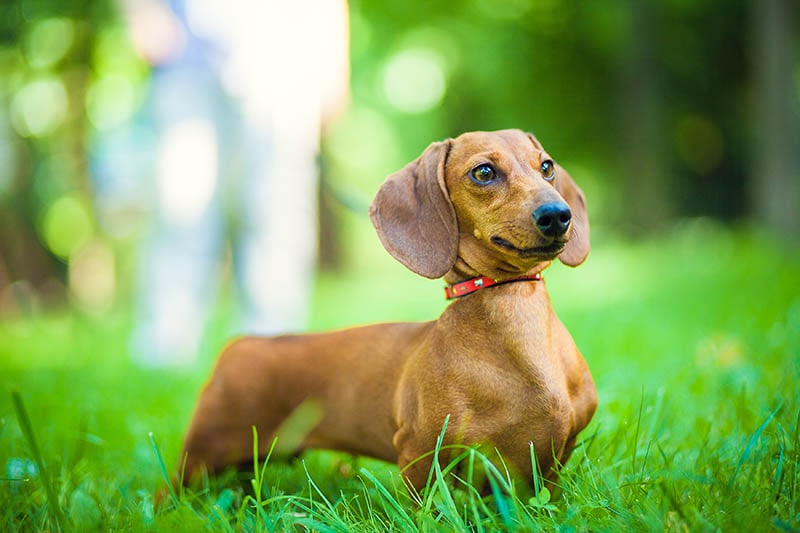
The Dachshund is an adorable dog with long bodies and short legs. They may have waned some in popularity, but they are still among the most common dogs in America. While they have great qualities, they do exhibit barking behavior more excessively than some.
Personality
Dachshunds certainly have lots of personality. They can be a little challenging for novice owners because they are very set in their ways and a little bossy. While these antics can be cute and sometimes entertaining, they can pose a little challenging for novice owners.
Part of the Dachshund’s obnoxiousness goes hand-in-hand with their barking. However, this trait can make them great watchdogs. They also make fiercely loyal companions with a special affinity for their owners.
While a Dachshund that is raised with small children will probably do okay, there can be a little bit of a power struggle here. In some cases, they might not always make the best dogs for homes with small children. For a Dachshund, they enjoy being the baby of the household.
Adaptability
Dachshunds tend to be moderately adaptable to new situations. The more they age, the more they get set in their ways, so if an older Dachshund is being rehomed, they might have a hard time initially warming up to the new situation.
Diet and Exercise
You have to be very careful with monitoring a Dachshund’s weight due to their body shape. A long back with short legs can cause back strain, leading to injury if your dog becomes overweight. Give them appropriate portions of high-quality dog food.
Dachshunds love to run around and require a moderate amount of exercise. You can take them on two lengthy walks a day or take them to the dog park to burn off some calories.
Living Compatibility
Dachshunds can be compatible with many different folks, but it can be a hit or miss. If adopting an adult Dachshund, always introduce the whole family (including pets) to see if they would fit your home well.
10. West Highland White Terrier
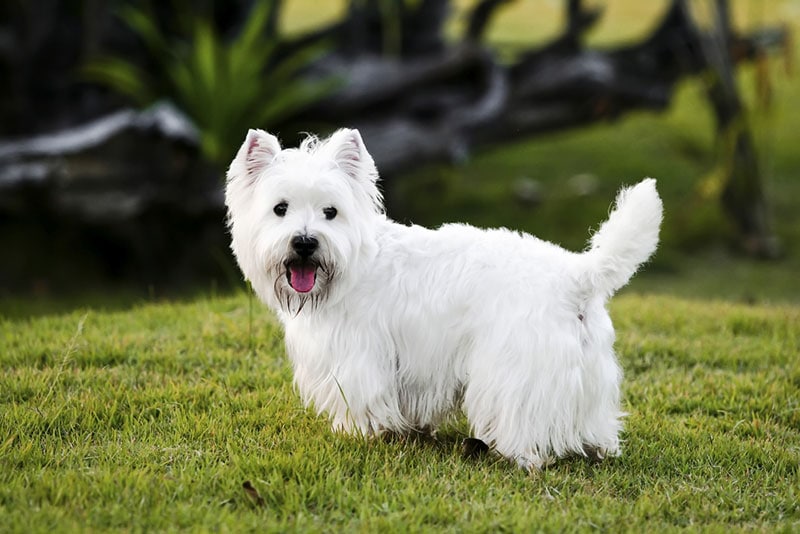
The West Highland White Terrier, or Westie, is a brave little dog that forges forward and with independence. This little dog, in combination with being tiny and adorable, also can be quite loud. Unlike some small, yippie sounds, the Westie has a gruff, intentional bark to show they mean business.
Personality
Westies are very independent in nature. They are extremely connected with their family units, but aren’t really afraid of anything. They will happily trot along, meeting anything in their path without being phased much.
The Westie can often fit into growing families, permitting them to have the proper training and exposure early on. Because of their contact size, they also make great pets for seniors looking to enjoy retirement.
Despite their independent nature, they certainly rely on human companionship and care.
Adaptability
Ultimately, the Westie is a pretty adaptable dog. They can mesh well into various situations. So, if you’re Westie ever needs rehoming, they do have a chance of acclimating into a new family, if it comes down to that.
Diet and Exercise
Like many small dogs, a Westie might be a little picky when it comes to food. They tend to prefer flavorful dishes over boring kibble. However, not all Westies are picky eaters. These dogs require a decent amount of exercise a day. The Westie is a hearty, physically capable little dog with moderate energy levels.
Living Compatibility
Westies can adapt to some living situations. However, if they’ve never been raised around children, they might find sharing homes with kids to be a little complicated. There could be a power struggle, and the Westie might not appreciate the boisterous nature of the child. So, consider that if you ever plan on adopting a Westie.
Why Do Dogs Bark?
Dogs can bark for a variety of reasons. There is no one-size-fits-all reason that dogs bark. However, here are a few things that often trigger barking in dogs:
- Genetics
- Territorial nature
- Instincts to alert
- Feeling expression
- Health issues
- Pain
- Boredom
- Overarousal
- Attention seeking
–and many more. Often, genetics and breed traits play the biggest role in frequent barking.
In the case of the dog breeds on this list that tend to bark a lot, it often has to do with what they were bred for. Many of these dogs were bred to hunt. Many smaller dogs were bred to be ratters, meaning that they would hunt down rats and other small animals.
Other dogs on this list were bred to hunt larger animals. These dogs needed to be able to alert their people that they found something, and barking was the best way to do that. So, barking is just a natural instinct to them.
And in the case of the Husky, they were bred to work alongside other dogs and people as part of a pack and to pull sleds, so they needed to be able to communicate with the other pack members. This could explain not only their barking, but their other vocalizations as well.
Conclusion
So, now you know which dogs are most notorious for barking. Whether that is undesirable or a trait you’re looking for, you have a small reference for breeds that fit into this category. Barking can be a real challenge for some families.
If you’re trying to curb barking behavior, learning about a breed can give you tools to correct the problem and understand the breed’s traits better.
Featured Image Credit: Polo Gtz, Shutterstock





